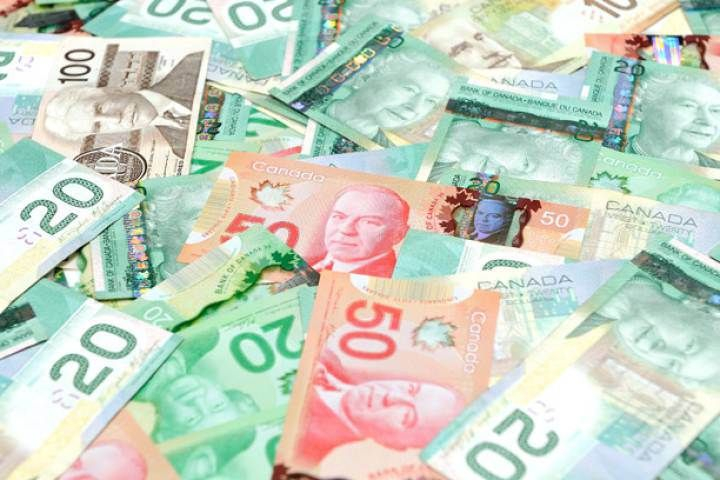The trail of dirty money in Vancouver linking housing prices, drugs, gambling
The Province of British Columbia has always seemed like a bit of a backwater — an up-and-coming province known for its pristine beauty, its "wild west" laws and its hippy-dippy social mores.
But after the shocking money-laundering revelations of last week that image is twisted. B.C. is still beautiful, but underneath there appears to be a seething cauldron of corruption that could be influencing everything from our sky-high housing prices to our massive and tragic numbers of opioid overdoses.
The NDP government has appointed an independent expert to review money laundering in the province and released a July 2016 report that found VIP gamblers can bring in bags stuffed full of $20 bills, buy chips with them, gamble a bit and then cash out with a legal cheque instead of the dirty money.
The Vancouver Sun’s Sam Cooper wrote two stories, showing how big bucks is laundered in B.C.and tracking the massive real estate holdings owned by some of the characters involved. Among other examples, Cooper found that one of the gamblers had sold at least five properties in Metro Vancouver for total proceeds of $48.4 million.
As these two events unfolded, the new Parq Casino opened, a massive complex next to B.C. Place Stadium complete with two hotels, eight restaurants and lounges and a 72,000-square-foot casino. The development was planned as a way to cover the $514-million new retractable roof on BC Place.
 [A group of retired police officers urged Vancouver City Council not to approve an expansion of gaming in Vancouver.
[A group of retired police officers urged Vancouver City Council not to approve an expansion of gaming in Vancouver.
 [A group of retired police officers urged Vancouver City Council not to approve an expansion of gaming in Vancouver.
[A group of retired police officers urged Vancouver City Council not to approve an expansion of gaming in Vancouver.Record-breaking profits for lottery corporation
The $514 million for the new roof represents less than half of BC Lottery Corporation's record-breaking profits this past year. The Crown corporation made $1.3 billion in net income – a whopping $96 million over budget.
That’s good news for the province’s healthcare, education and charitable and community programs, which are funded with gaming revenue. However, what it says about our society is another thing entirely.
In 2011, a group of prescient retired police officers wrote a letter to Vancouver City Council, asking them not to approve the BC Place casino development.
“Casinos and racetracks are well known for their vulnerability to the activities of gangs and organized crime — money laundering, loan sharking, extortion and prostitution, as well as for the vulnerability to public corruption which they engender,” the letter states.
It goes on to draw a link between addiction to gambling, drug dealing and suicide. The group of officers plead with the council to consider these societal costs, and not to expand the casino.
Now, faced with a buried report that's already a year old, Attorney General David Eby has asked Peter German to review B.C.’s anti-money-laundering policies and practices.
As a lawyer, former deputy RCMP commissioner and the author of a textbook on organized crime, German is an excellent candidate to stop dirty money from corrupting B.C.'s economy.

Unreleased 2016 report full of shocking findings
Eby said he wants to protect the interests of British Columbians, and from the contents of the 2016 report that sounds like a much-needed measure.
During a single month in 2015, $13.5 million in $20 bills believed to be the proceeds of crime was accepted at the River Rock Casino Resort, the report found. The money was dropped off to patrons on or just off the casino property, often late at night. “High roller Asian VIP clients” used the cash, the report says, to join games with buy ins as high as $500,000.
The "proceeds of crime" is usually money made from the illicit drug trade, and sometimes other crimes like fraud or cigarette smuggling, the RCMP proceeds of crime branch says.
It's not hard to make the leap and surmise that some of the cash stuffed into those bags dropped off at the River Rock likely came from drug dealers. And what drugs were they dealing and at what cost to British Columbians?
So far this year, 876 people in B.C. have died from drug overdoses, most of those attributed to illicit fentanyl, a drug that is produced in clandestine labs, from China. Fentanyl is used by drug dealers to increase both the high and the profits and as a cheap alternative to heroin.
We’ve got bags of dirty money. Literally millions of dollars that is probably raised by selling illegal drugs that are fueling the opioid crisis are being gambled and “laundered” at B.C. casinos. Then they are sometimes invested in real estate in B.C., fueling the housing affordability crisis.
A fine mess. Let’s hope German’s review can help clean it up.
No comments:
Post a Comment
Comments always welcome!